When a child or teen is grieving the death of a parent or a sibling, it can be difficult for the parent or caregiver to know how to respond. It may be hard to know what reactions and behaviors are typical developmentally and what is related to their grief. This can be especially challenging to navigate when parents and caregivers are grieving themselves while also managing day-to-day responsibilities. The way a surviving parent or caregiver copes with the death of a spouse, partner, or child may influence how well a child will cope over time. Our Clinical Director, Nancy Frumer Styron, and our Center Based Program Manager, Jen Noonan, share some tips for parents and caregivers.
Grief is unique.
Everyone grieves in their own way. Even members within the same family might grieve differently, so it is important to understand and acknowledge that grief can ‘show up’ in many different ways. Sometimes it can look loud and noisy; other times quiet and calm. Helping kids understand this lets them know there is no ‘right’ way to grieve.
Development matters.
How a child grieves looks different at different ages and how a child grieves will change over time. While there is no ‘right’ way to grieve, there are some developmental and cognitive norms that can help parents and caregivers understand what reactions and behaviors might be grief responses and what might be related to typical child development
Listening
Giving a child or teen your full, uninterrupted attention without an immediate response or solution can be challenging. While this isn’t always easy, it is crucial in helping them feel heard. Allowing a child to share without immediate response can help a conversation open up and might generate important dialogue and a clearer understanding of what a child is trying to communicate.
It’s ok to ask for help – “it takes a village”
It is important for the parent to be able to ask for help from others even though it is not always easy to ask for help, especially after a loss. Whether it’s asking a friend to drive your kids to an event, mow the lawn, or drop off a meal, asking for things that will truly benefit you and the children can be helpful. It is a great way for your child to see that people are supporting you and that asking for help is ok.
It won’t be the same as before, and that can be ok
Whether it is who makes pancakes on Sundays, how holidays are celebrated, who helps with homework, or who does certain chores, children can thrive, and families can adapt healthily and thrive. These things will likely not be experienced similarly, and it is ok to acknowledge that. Grief changes over time as we experience new things and revisit old things. Some traditions may stay, and new traditions or ways of doing things may evolve over time. The types of questions that children and teens have about grief or the person who died might also change over time.
Self-care
Self-care is often not a priority for a parent or caregiver who tends to be more focused on the child or teen. When we talk about self-care, we’re not talking about big, grand plans…we are talking about small, tiny things that parents and caregivers can do to nourish themselves. This can be lighting a candle, making a cup of tea, going for a walk, or listening to a podcast; anything and everything counts! A parent or caregiver’s ability to make time for self-care, even just for a few minutes each day, will not only be beneficial to them and their children; it is also a good way to model self-care and positive coping for their child or teen to help them understand the importance of these skills.
Our Parenting While Grieving series offers a 6-week psycho-educational series online to adults parenting children and teens who have had a parent die. The focus is on helping parents and caregivers gain more knowledge and skills to aid them in parenting children who have experienced the death of a parent or sibling. This group also provides the opportunity for parents and caregivers to connect with others who may be having similar experiences. A separate series on Parenting children who have had a sibling die is also offered once a year.
To learn more about our programs and services, please email info@childrensroom.org or click HERE.



